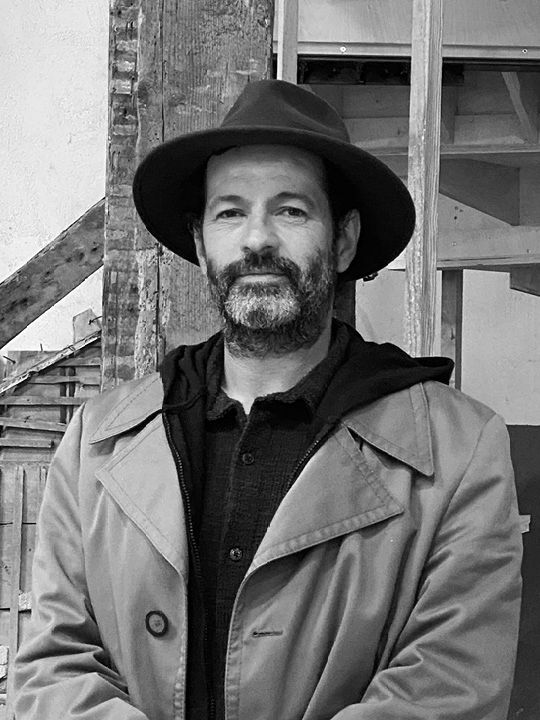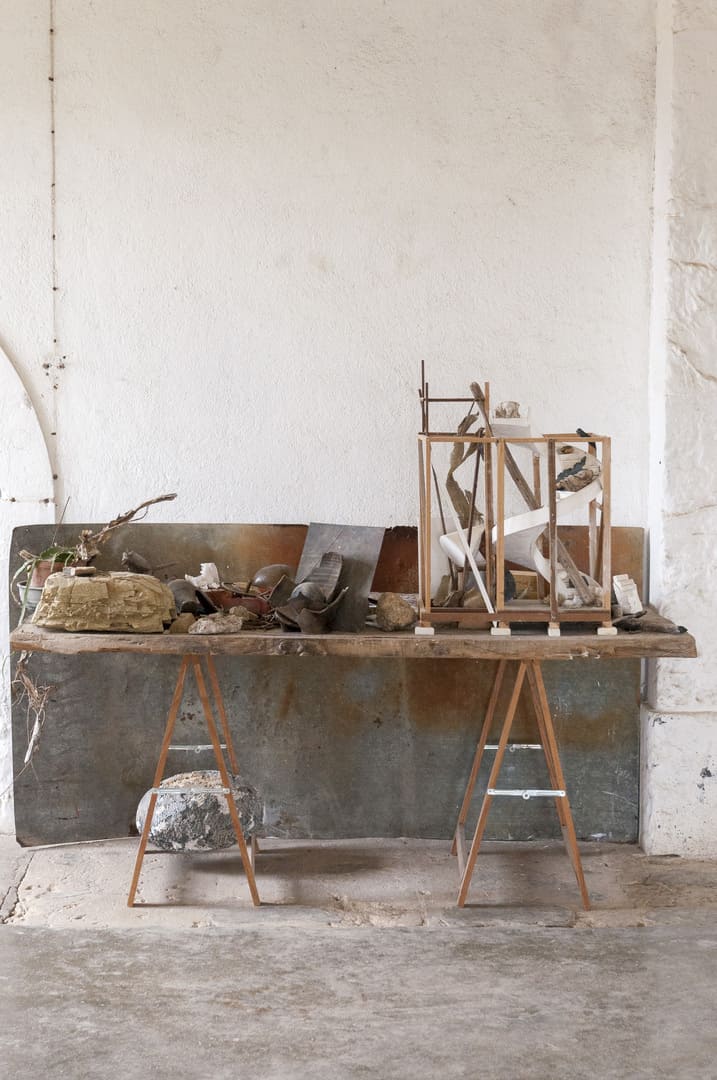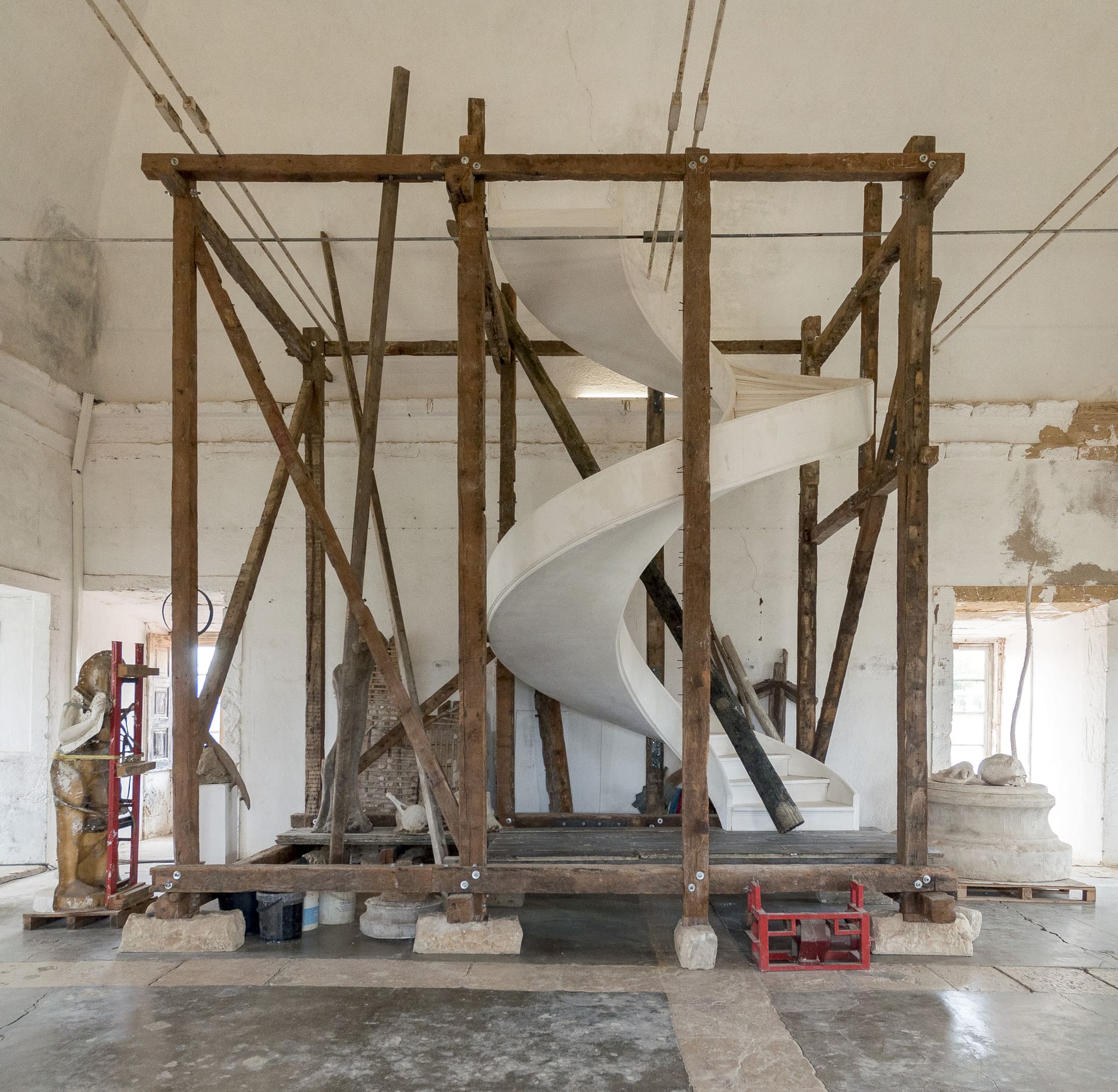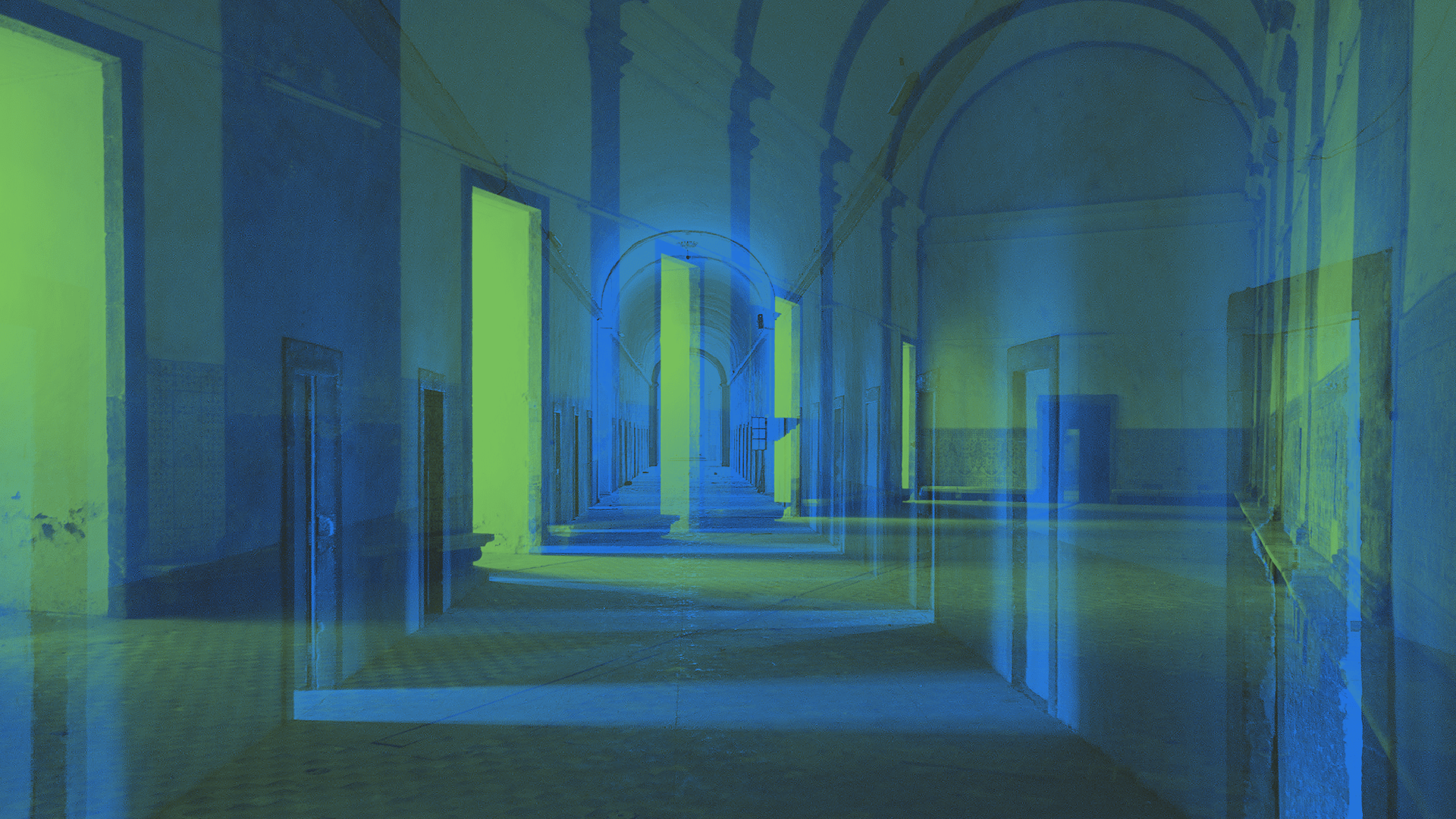Filipe
Feijão
Filipe Feijão



France, 1975
Filipe Feijão (Sarcelles, France, 1975) develops his work on the margins of the usual path taken by most artists. With his thinking and practice, he expands the field of sculpture with projects that often assimilate the idea of work in progress and sometimes take years to materialise.
Working continuously, the artist takes on endeavours that often serve as an extension of his studio in Caldas da Rainha. Approaching sculpture, workspace and installation, Filipe Feijão’s utopian projects are amalgams of strange objects, lost artefacts, organic and inorganic elements in coexistence and symbiosis. As places of transit between this and another world, they seem to want to perform the difficult task of reconciling body and matter, life and death, nature and culture.
Estrutura, 2019–2024
Wooden beams, plaster sculptures, plastic buckets with clay stones, zinc-plated bowl with water and sediment, table with model, wild olive tree trunk, limestone blocks and various materials
Courtesy of the artist.
Over the course of five years, Filipe Feijão designed a “proto-museological structure” as an extension of his studio in Caldas da Rainha, consisting of a staircase as its central component and a varied set of objects “inhabiting” its space and surroundings. Plants, cacti, whale bones, ceramic pieces, wooden beams, small fossils, and a collection of curious elements began to populate the staircase, transforming it into a living, ever-expanding sculpture. In this work in progress, elements of the Western sculptural tradition coexist, such as the proximity to the language of neoclassicism, anthropomorphic elements, and the idea of ruin. Paradoxically, Estrutura also challenges the notion of sculpture as a hermetic object, impassive to the passage of time.
For this Biennial, the work will occupy one of the Monastery of Santa Clara-a-Nova turrets. During the three months that the exhibition will be open, Estrutura will experience the vicissitudes of the space where it is located, being organically affected by it — in a movement that will remind us of the fundamental freedom contained in the artistic gesture.
Filipe Feijão lives in Caldas da Rainha. His work has been exhibited in various national and international institutions, including Centro Internacional das Artes José de Guimarães, Círculo de Artes Plásticas de Coimbra, Zaratan, Centro de Artes de Sines and Galleria Collicaligreggi. He has participated in two collective projects at Galeria Quadrado Azul, A Gruta and Mãos Negativas.


